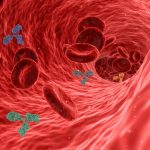Hearthealth
Making an adjustment is an important part of living with heart disease or trying to prevent it.
A jump in blood pressure or cholesterol is a sign that some changes healthy lifestyle changes are needed.
Some people manage to change their exercise patterns, diet, and unhealthy habits with ease. The rest of us try to make changes but don't always succeed. Therefore, as an alternative to a total overhaul, it is a lot better to make a series of small changes. Once you get going, you may find that change isn't so hard.
 Diet: The importance of eating a well-balanced, nutritionally complex diet is the main thing to keep the circulatory system (and the rest of the body) working and it does not ask for much in return. The body needs clean, colourful, circulatory-friendly food, making it also easier to maintain homeostasis.
Diet: The importance of eating a well-balanced, nutritionally complex diet is the main thing to keep the circulatory system (and the rest of the body) working and it does not ask for much in return. The body needs clean, colourful, circulatory-friendly food, making it also easier to maintain homeostasis.
Following a mainly whole food diet – with as few minimally processed ingredients as possible – is one of the best ways to support circulatory health. You can check the BBC's article about ultra-processed food. (https://www.bbc.co.uk/food/articles/what_is_ultra-processed_food).
Fill up on fibre: Fibre is important for circulatory health; with a growing amount of scientific data suggesting regular consumption of high-fibre diet may support cardiovascular function. The recommended daily intake of fiber varies between 25 to 38 grams per day. Some experts estimate as much as 95 percent of the population is not getting enough fiber. In cases of illnesses such as IBS - high-fibre food might not be suitable. Part of the high fiber diet plans could include: Wholegrain low sugar/salt breakfast cereals, whole wheat pasta, wholegrain bread and oats, barley and rye; fruit such as berries, pears, apples melon and oranges; vegetables such as broccoli, carrots and sweetcorn; peas, beans and pulses, nuts and seeds and potatoes with skin.
 Exercise: The body and especially blood circulation loves movement. A regular exercise regime makes the circulatory system more robust and flexible. Physical activity can help with improved muscle tone. Exercise can help to regulate blood pressure by lowering the resting heart rate and reducing visceral fat. The better and more resilient the circulatory system is, the it is to improve movement and increase the athletic performance.
Exercise: The body and especially blood circulation loves movement. A regular exercise regime makes the circulatory system more robust and flexible. Physical activity can help with improved muscle tone. Exercise can help to regulate blood pressure by lowering the resting heart rate and reducing visceral fat. The better and more resilient the circulatory system is, the it is to improve movement and increase the athletic performance.
Prepare to sweat: Cardiovascular (aerobic) activity is often held up as the heart-healthiest exercise. Research suggests pulse-raisers may reduce ‘bad’ (LDL) cholesterol, help lower blood pressure and maintain optimal weight. Remember that exercise does not have to look like a traditional exercise, yoga sessions, gardening, housework and dancing are also good forms of activity.
 Aim for 10,000 steps: Deceptively simple, upping the step count to 10,000 a day is one of the best ways to get the blood pumping around the circulatory system. There are plenty of ways to increase the step count: walk to work, get off the bus three stops earlier or take a brisk walk during the lunch break.
Aim for 10,000 steps: Deceptively simple, upping the step count to 10,000 a day is one of the best ways to get the blood pumping around the circulatory system. There are plenty of ways to increase the step count: walk to work, get off the bus three stops earlier or take a brisk walk during the lunch break.
Of course, steps are not the only important consideration here; the pace is important too. For the ultimate blood circulation workout, walk briskly at a rate that makes you feel slightly breathless. Recent research shows that high levels of exercise can lessen some cardiovascular risks. Yet even for people with high levels of activity, there seems to be a threshold of around 10 hours of sitting - inactivity, can hinder cardiovascular health.
 Inactivity has consequences: The heart is a muscle; it needs regular physical exercise to make it bigger and stronger. When active (exercising), the lungs can better oxygenate the blood, and take the nutrients and other beneficial substances around the body enabling it to reach all the cells and tissues of the body. But when sedentary, fatty and toxic materials can begin to cause inflammation and clog the arteries and compromise circulatory health. Lack of oxygen from poor blood circulation restricts muscle growth and development. It can also cause poor blood circulation, muscle pain, numbness in the legs, cramps, skin discoloration, muscular weakness, slower nail and hair growth and erectile dysfunction.
Inactivity has consequences: The heart is a muscle; it needs regular physical exercise to make it bigger and stronger. When active (exercising), the lungs can better oxygenate the blood, and take the nutrients and other beneficial substances around the body enabling it to reach all the cells and tissues of the body. But when sedentary, fatty and toxic materials can begin to cause inflammation and clog the arteries and compromise circulatory health. Lack of oxygen from poor blood circulation restricts muscle growth and development. It can also cause poor blood circulation, muscle pain, numbness in the legs, cramps, skin discoloration, muscular weakness, slower nail and hair growth and erectile dysfunction.
Lifestyle tips: While a healthy diet and robust exercise regime will undoubtedly work wonders for the circulatory system, admittedly, it can only do part of the work. The lifestyle factors such as smoking or overindulging in alcohol may undo all the hard work. But it is not just a case of cutting out bad habits; another beneficial way to help the mental health and body systems can come from adding new routines to the daily routine, like dry brushing or a cold morning shower. Aim to have a good 7-8 hours of sleep, enjoy the company of your friends, and laugh a lot.
 Water: Water makes up about 60 percent of the body weight. Every cell, tissue and organ in the body needs water to work properly. Water can help to clear out wastes through urination, perspiration and bowel movements. Water also helps to keep the temperature normal, and water lubricates and cushions the joints (including the disks in your spine); it is also critical for heart health. Staying hydrated – helps the heart do its job.
Water: Water makes up about 60 percent of the body weight. Every cell, tissue and organ in the body needs water to work properly. Water can help to clear out wastes through urination, perspiration and bowel movements. Water also helps to keep the temperature normal, and water lubricates and cushions the joints (including the disks in your spine); it is also critical for heart health. Staying hydrated – helps the heart do its job.
Dehydration can occur when the body loses more fluid through sweating, illness, fever or urination from the consumption of food and water. Dehydration can negatively affect the body's organs and bodily functions, including the heart and cardiovascular system.
 When dehydrated the blood volume - or the amount of blood circulating through the body, decreases. To compensate, the heart beats faster, increasing the heart rate and blood pressure. Also, dehydration can affect blood flow. The blood retains more sodium, thickening the blood and making it harder for the blood to circulate through the body.
When dehydrated the blood volume - or the amount of blood circulating through the body, decreases. To compensate, the heart beats faster, increasing the heart rate and blood pressure. Also, dehydration can affect blood flow. The blood retains more sodium, thickening the blood and making it harder for the blood to circulate through the body.
Keeping the body hydrated helps the heart pump blood more easily and allows oxygen to reach the muscles, which helps the muscles work efficiently.
To support blood flow, aim to drink at least 1.5 litres of water each day – increase the amount when active.
Some of the fluid comes from other beverages and food. Why not keep a water bottle at the desk whilst working, have a glass of water next to the bed, and when you wake up in the morning have some before getting up? I personally add lemon, cucumber, or mint to the water to give it some flavour.
 Stress less: An unexpected bill, relationship trouble, a strongly worded email from the boss – stress abounds in our modern-day life. Stress is our body’s response to pressures from challenging situations in life. It can be a feeling of being overwhelmed or under pressure. Stress triggers the ‘flight or fight response in the body: the heart rate increases and the heart muscle might have to work harder. The stress hormones – cortisol, adrenaline and noradrenaline (from the adrenal glands) – perform as chemical messengers for these effects; it is important to remember that these hormones are important for the body’s health. Beyond this, the blood vessels transporting blood to the heart and major organs dilate, elevating blood pressure. Over time, chronic stress may compromise the circulatory system.
Stress less: An unexpected bill, relationship trouble, a strongly worded email from the boss – stress abounds in our modern-day life. Stress is our body’s response to pressures from challenging situations in life. It can be a feeling of being overwhelmed or under pressure. Stress triggers the ‘flight or fight response in the body: the heart rate increases and the heart muscle might have to work harder. The stress hormones – cortisol, adrenaline and noradrenaline (from the adrenal glands) – perform as chemical messengers for these effects; it is important to remember that these hormones are important for the body’s health. Beyond this, the blood vessels transporting blood to the heart and major organs dilate, elevating blood pressure. Over time, chronic stress may compromise the circulatory system.
Studies suggest that the high levels of cortisol from long-term stress can increase blood cholesterol, triglycerides, blood sugar, and blood pressure. These are common risk factors for heart disease.
Contact The Green Herbalist Clinic to make an appointment to discuss how herbal medicine can benefit circulatory health.

